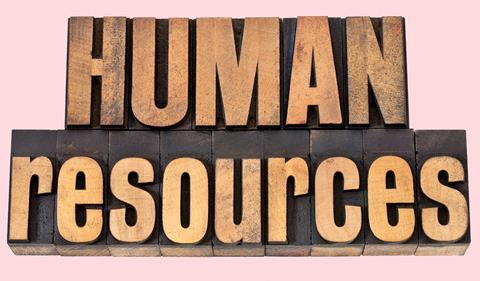With cuts in back-office spending, cross-organisational partnerships can achieve the required economies of scale, while maintaining efficiency. By Sally Campbell, Rachael Charlton and Peter Reilly

Human resources
It has been a long journey since 2006 when three sovereign NHS trusts (East Cheshire Trust, Central and Eastern Cheshire primary care trust and Western Cheshire PCT) were looking to see how they could increase efficiency in their HR functions and maximise their resources.
‘Even before the Gershon review, trusts were looking at making back-office functions more efficient’
They had the idea that the creation of common service provision for some HR activities, while continuing with separate and organisationally specific activities for other HR work, was the way forward. In 2007, the Cheshire HR Service (CHRS) was created as a virtual organisation, hosted by East Cheshire Trust, to provide shared services in areas of HR administration, learning and development, occupational health and counselling.
Bound together through service-level agreement partnerships, it became an operation with more than 120 staff and a budget of £4.3m serving many more than its original three customers and with a broader range of HR services including employee relations advice, recruitment administration and strategic HR consultancy.
A new arrangement
The changing NHS landscape made the original arrangement inoperable: two of the three founding organisations disappeared when the move to GP-led commissioning ended the days of the PCTs, meaning that the Cheshire HR Service had to find a new organisational format. The service team led by Sally Campbell (managing director of CHRS but for part of the period also HR director for East Cheshire Trust) wanted if possible to remain a member of the NHS family, but with greater commercial freedom than was possible when owned by the trust.
Thus began a long but ultimately fruitful move towards joining Arvato, a business outsourcing company with an emerging presence in local government HR outsourcing, with ambitions to move into central government and health. It has just announced a contract to run the Department for Transport’s HR shared services.
What does this story tell us about the organisation of HR management in the NHS?
An efficient back office
Even before the 2004 Gershon review of efficiency, trusts were looking at making back-office functions more efficient, but more recent real terms cuts in NHS funding have driven this process further and faster: how to take out costs while maintaining patient care. The obvious solution − and as advocated by the coalition government − is to protect the front line and reduce expenditure on the back office.
HR functions across the NHS have responded through considering a process of functional transformation that would follow the private sector example of “eliminate, streamline, standardise and automate”, known as ESSA. The challenge in the NHS is whether single trusts are big enough to generate enough funds to invest in technology and process change, or big enough to achieve economies of scale. This weakness leads to thinking about whether cross-organisational collaboration, partnerships or even integration through various insourced, outsourced or mixed models is the solution.
Share and share alike
CHRS was formed out of this requirement to share. It meant, through the use of pooled resources, an economically viable shared services operation could be established and the conditions created whereby efficiency in (automated) transactional processes could be achieved. CHRS then made available to other trusts the opportunity to benefit from its economies of scale and state-of-the-art self-service technology, and to use its change expertise and experience in maximising the benefits of the electronic staff record model office.
‘HR is not just about administration; it should contribute strategically and operationally to organisational performance’
Six years later there are now more examples of cross-organisational partnership as well as more straightforward outsourcing to commercial entities. However, progress has been slower than might have been expected in a rapidly changing market for a number of reasons.
First, the sharing model is difficult in the NHS because of the requirement (for reasons of financial accountability) for one trust to host the service and employ the people.
This creates imbalances in the partnership and extra governance challenges than are found where business arrangements are more flexible. This is pushing organisations more towards outsourcing to get their economies of scale and technology investment.
Second, HR directors (and many chief executives) are reluctant to give up resources; reduce the scale of their operation or become reliant on third parties. They often want to keep control over their HR activities in order to minimise perceived risks but also changing a function that is so critical to the organisations’ success can take time and energy, which may feel like a step too far given other competing priorities.
Third, organisations find it hard to be clear about the boundary between shared resources and retained or embedded resources.
A healthy contribution
This last point introduces an important aspect of HR transformation in the NHS. Most politicians and many senior managers see HR’s only value in the way it delivers transactional services like recruitment, training and records management. But HR is not just about administration; it should contribute strategically and operationally to organisational performance.
For example, HR should be concerned with the engagement, wellbeing and productivity of the workforce, set within a culture where espoused values and behaviours drive the quality of services.
Private sector organisations by and large have ensured that this contribution is secured while getting greater efficiency in the transactional area of its activities. This can be achieved by employing HR business partners aligned to departments/business units to link HR and organisational development to local service priorities and at corporate level through the HR director and their team.
Sally Campbell is managing director of the Cheshire HR Service, Rachael Charlton is director of HR and organisation development at East Cheshire Trust, and Peter Reilly is director of HR research and consultancy at the Institute for Employment Studies. He was an adviser to the setting up and running of CHRS



























No comments yet